Table of contents
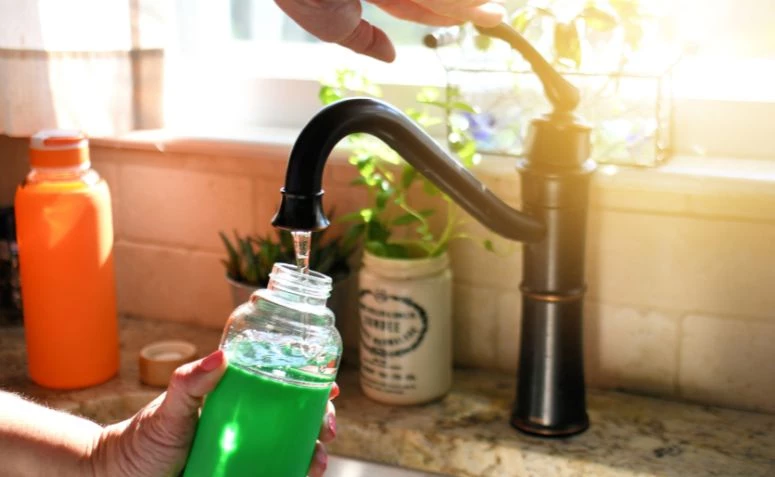
H20: how can such a small formula represent everything that water is? On a hot day, that cool water is good to relieve the heat; warm water is perfect to be flavored with leaves for a delicious tea; hot water is one of the great allies of cleanliness and great for bathing in winter. But the idea here is to show you how to save water, this precious liquid.
The time is gone when everyone believed that the Earth, "planet water," had this infinite resource. If we don't take care of this natural wealth, scarcity will be more and more imminent. So, no more washing the car or the sidewalk with the hose on, okay? And that's not all! Check out the following 50 tips on how to save water on a daily basis at home:
1. take quick baths
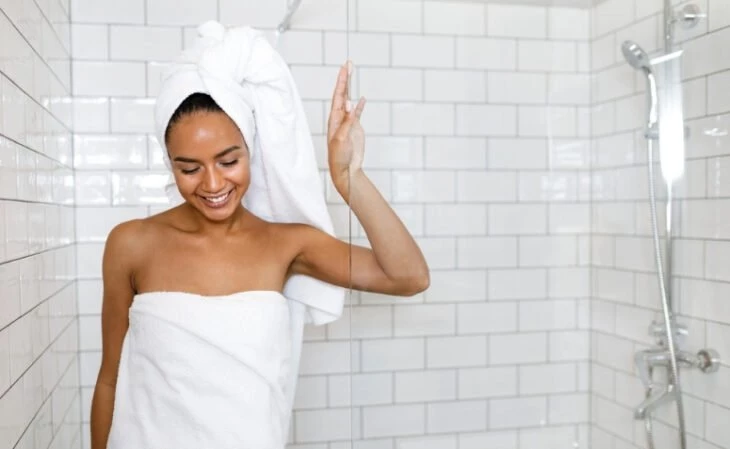
Are you the kind of person who lets out your vocal chords and puts on a real show under the shower? Change your strategy, you can sing in front of the mirror, for example, and have a quick shower. According to the World Health Organization (WHO), five minutes is the ideal time to be able to wash yourself properly and achieve a sustainable use of water and energy. And if you keep the register closedWhile soaping, the saving is 90 liters if you live at home or 162 liters if you live in an apartment, according to Sabesp (Basic Sanitation Company of the State of São Paulo).
2. don't let the taps drip!
That ping ping that you hear when you lie down to sleep makes a big difference in your water bill, you know? And, most of the time, changing the rubber band on the faucet, a cost of no more than two reais that you can do yourself, already solves the problem! In fact, a month of this dripping faucet can generate a waste of up to 1300 liters of water.
3. soak the dishes
Use a large bowl or cover the kitchen sink and fill it with water. Leave the dishes there for a while, soaking them. It will be much easier to follow up afterwards, since the dirt (food residues and grease) will come off much easier!
4. store rainwater
The water that falls from the sky can also be used. Use buckets, barrels, or basins to store rainwater. You can then use it to water the plants, clean the house, wash the car, the yard, the service area, or even give your dog a bath.
5. right time for watering
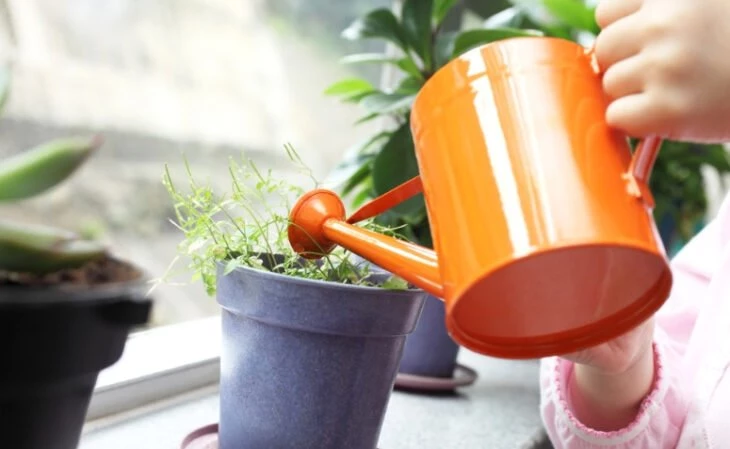
Did you know that plants absorb more water at the hottest times of the day? So take advantage of watering at the mildest temperatures, such as in the evenings or mornings.
See_also: Wallpaper for living room: 70 ideas and tips to renew the decoration6. no hose in the backyard
You know how lazy you are to sweep the yard? It would be much easier to just pile the leaves from the trees in a corner with a jet of water, wouldn't it? Forget that idea! Give up the hose and embrace the broom for this task. Not only do you save water, but you also get some exercise!
7. tap is always closed!
When it's time to shave or brush your teeth, don't leave the tap running forever. Only open it when you really need the water! According to Sabesp, by keeping the tap closed you save 11.5 liters (house) and 79 liters (apartment) while brushing your teeth and 9 liters (house) and 79 liters (apartment) when shaving.
8. check pipes and possible leaks
Drop by drop, a leak can waste about 45 liters of water a day! Do you know how much that is? The equivalent of a baby swimming pool! So, from time to time, give your home's pipes a tune-up to avoid this expense. If you discover a leak in a street pipe, contact your state water company.
9. wash the car with a bucket
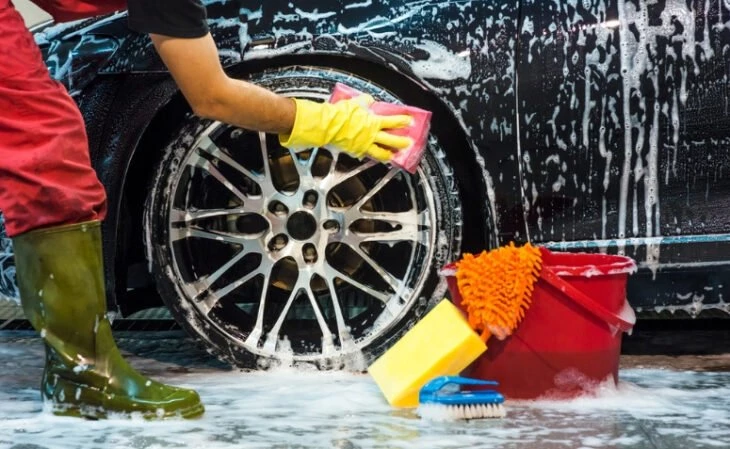
Admit it: it won't be so "painful" to use the bucket instead of the hose to wash the car. The cleaning process is simple and, with organization, you can spend the same time as with the hose. Your car will be just as clean! This exchange generates savings of 176 liters, according to information from Sabesp.
10. save on disposals
Nowadays the market already offers several types of flush actuators. The one that pays the most for your pocket and for the planet in the long run is the piece that has two jet options, called dual flush: a weaker and a stronger one, respectively for when you do number one or number two! This technology (valve dual flush ) is able to save water by up to 50% of the traditional volume. There is also the possibility to regulate the flush valve, decreasing the water pressure and, consequently, the consumption.
11. keep an eye on the water tank
When filling the water tank, make sure it doesn't overflow, do periodic maintenance to avoid surprises and unnecessary expenses, and always leave it covered to avoid evaporation and mosquitoes and other insects from entering the water.
12. a certain day for washing clothes
Set a day in the week to wash the clothes at home. Separate by groups (white, dark, colored and delicates) and wash everything in one day.
Reuse the water from the washing machine
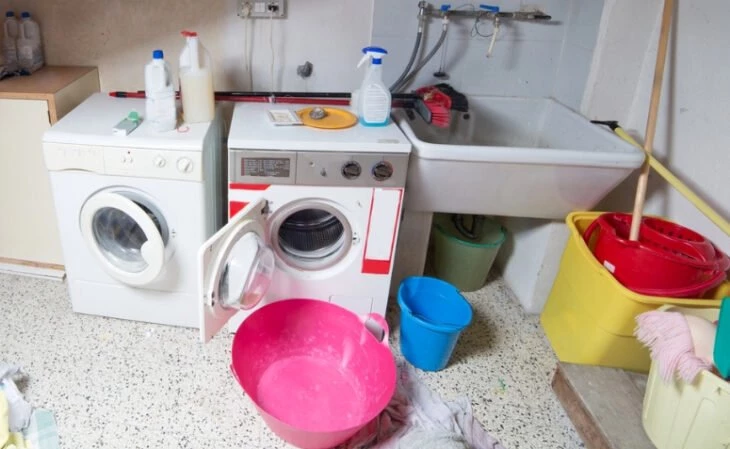
You can reuse the water from washing clothes to wipe down the house, wash the yard, or even the sidewalk. Another option is to use this water to wash your floorcloths.
14. use the maximum capacity of the appliances
Many times a garment can be worn two, three or even four times before being put in the wash; that is, they don't get dirty instantly - like jeans, for example.This avoids the excessive use of the machine", says Aline Silva, marketing manager of Casa KM, a company specialized in the manufacturing of cleaning products for clothes and the house. The same idea also applies to the dishwasher and the washing machine.
15. learn how to read the water meter
The water meter is the device that reads the water consumption. It is the information it collects that appears on your water bill. So, this is a tip to hunt for leaks: close all the registers in the house and then check the water meter. The right thing is for the pointer to be still. If it is moving, it is a sign that there is a leak in your house. Then, the next step is to look for aprofessional to locate and fix the problem.
16. clean before washing
Before putting the dishes to wash (in the sink or in the dishwasher), clean the dishes well, scraping every little corner and leftover food. Ideally, of course, nothing should be left over, to avoid food waste as well.
17. use accessories to help you save money
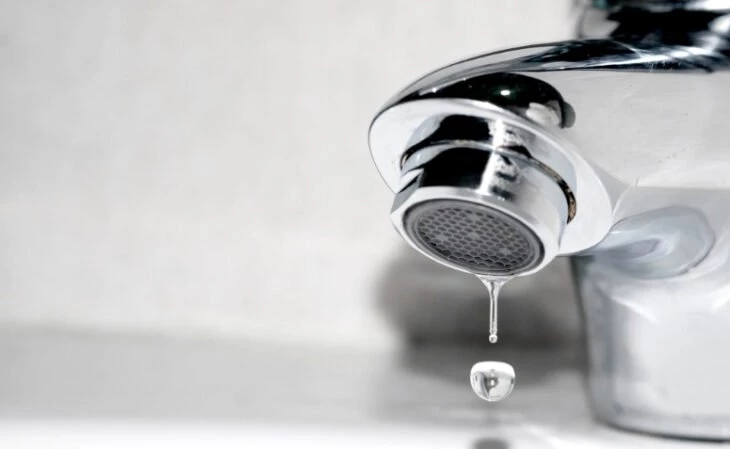
Watering can, spray nozzle, aerator, pressure reducer, aerator .... These pieces are sold in hardware stores, construction or hardware stores. They are used to attach them to the end of a faucet or hose, reducing the volume and pressure of the water.
18. close the register!
The long-awaited holiday or vacation has arrived, and you can't wait to get on the road. But before you leave home, close all the registers. Besides preventing possible leaks, it is one of the safety measures for when you are away.
19. leave a bucket in the shower
Most people like to take a shower with warm or hot water, but it takes a while for the water to get to the ideal temperature for everyone, so the bucket is a great ally at this moment, to collect the cold water, which usually goes down the drain and can be used later.
20. reduce the damp cloth
Instead of wiping your home's floor with a damp cloth every day, opt for sweeping only. If your routine is to eliminate your pet's hair, it is worth investing in a vacuum cleaner. You will spend electricity to clean everything, and you can leave the damp cloth only for Friday or for the cleaning day chosen for your home.
Defrost food in the refrigerator
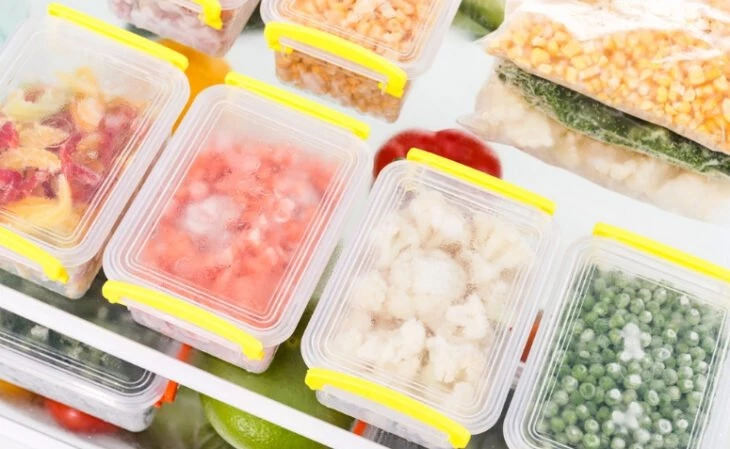
Some people, in their hurry to defrost some food, put the container in a water bath - and this water is discarded afterwards. To avoid wasting this water (which is usually enough to fill a large pot), put a reminder on your cell phone and take the food out of the freezer in advance and leave it on the sink. Another option is to pass the frozen food from the freezer straight to the refrigerator.Thus, the product will lose the ice "naturally" and remain refrigerated.
22. choose plants that require little water
If you do not give up having a green corner at home, you can still opt for species that do not require so much watering, such as cacti and succulents. Besides being beautiful, they also do not require so much maintenance.
23. take care of your pool
Avoid changing the pool water. Learn how to clean your pool correctly to avoid discarding all that water volume, often unnecessarily. Another tip to preserve the water is to cover the pool with a tarp: besides keeping the water clean, it avoids evaporation.
24. don't pour oil into the sink
There are collection points that accept used cooking oil. By delivering the oil stored in PET bottles to these places, you can be sure that the disposal will be correct. Never throw the cooking oil down the sink drain. It can contaminate the water and even make your drain clog!
25. use the broom on the sidewalk
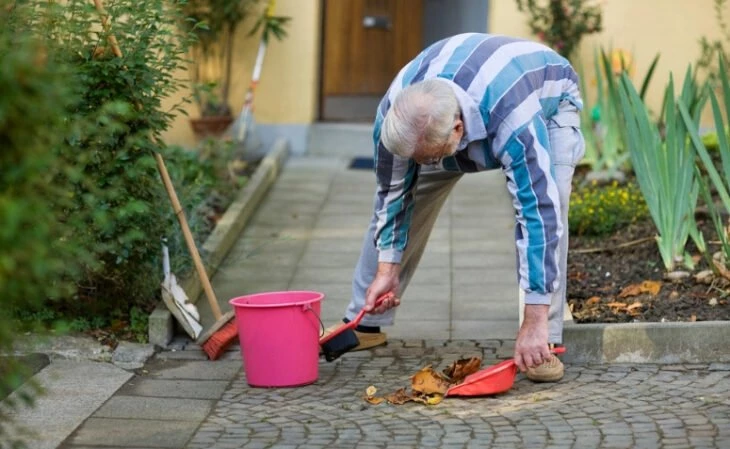
The exchange of the hose for the broom to clean the sidewalk generates savings of 279 liters every 15 minutes, according to Sabesp. In other words, no more hoses to "sweep" the sidewalk!
26. wash fruits and vegetables without wasting water
For this type of washing to be efficient, use a vegetable brush to clean the food to remove dirt and any traces of soil, and soak the vegetables in a specific chlorine solution, available for sale in almost all supermarkets.
27. drip irrigation for vegetable gardens
This type of irrigation has three positive points: you don't have to worry about your little plant if you forget to water it, and the drip allows the plant to be neither dry nor overwatered.
28. install green roofs
The green roofs can be used for a specific type of grass, with not very long roots, or even as your vegetable garden (as long as you have easy access to it, obviously). This type of roof makes the house cooler, too, because it distributes the sun's heat and water evenly to the plants.
29. cook with less water
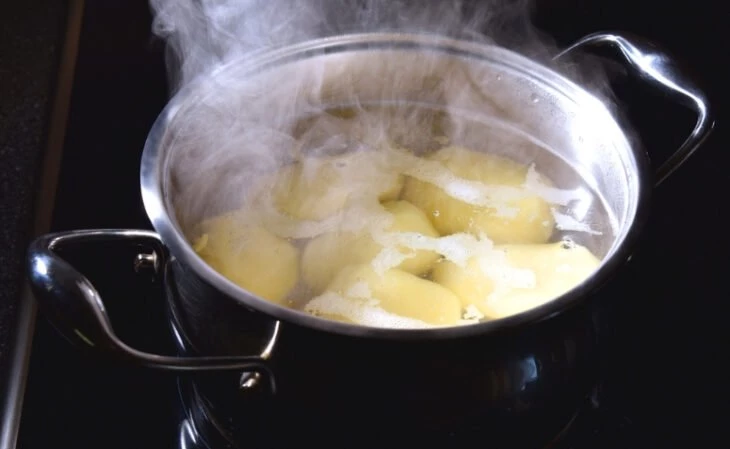
If you are going to cook some vegetables, you don't need to fill a pot to its full capacity, just cover them with water, i.e. one or two fingers above them. Make sure you use a pot that is the right size for the recipe in question. Always check (read and reread) the directions for each recipe. Most recipes don't require much water to prepare. Using too much water, in this case, can be harmful (oraltering the flavor) of your dish, besides prolonging the preparation time and consequently also increasing the consumption of cooking gas.
30. maintain the air conditioner
The story of a dripping air conditioner is familiar to you? To avoid this water going to waste, put a bucket under the dripping water and use it later to water the plants, for example. Don't forget to keep the maintenance of your air conditioner up to date to avoid unnecessary (water and energy) expenses.
31. don't throw garbage in the toilet bowl
It may seem obvious, but it does not hurt to reinforce: do not throw sanitary pads or cigarette ashes into the toilet bowl, or even toilet paper down the toilet.
See_also: Highlight your project with the natural subtlety of hijau stone32. use a glass to brush your teeth
To discard less and less water, another golden tip is to use a glass of water to brush your teeth. With this simple action you can save more than 11.5 liters.
33. don't fill the bathtub
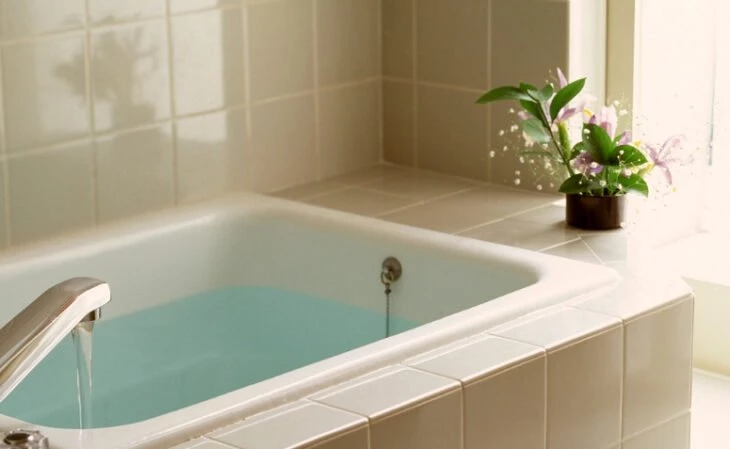
There is no need to fill the bathtub (adult, whirlpool, or even children's) completely. For a relaxing and enjoyable bath, just fill it 2/3 (or a little more than half) of its capacity.
Use cold water for washing clothes
It is not necessary to choose the program that takes hot water in the wash. If the clothes have a stain that is more difficult to get out, choose to soak them in a bucket with the bleach of your choice and then add the hot water needed to cover that single piece of clothing. Washing clothes in the cold cycle also prevents early fading and saves on electricity consumption - it is not necessary to choose the program that takes hot water in the wash.since it will not heat the water.
35. wash clothes by hand
Although it requires some effort and is not very practical in everyday life, those who want to save money should wash as many clothes as possible by hand - including smaller or delicate clothes that naturally require more care.
36. don't cut the grass too much
Did you know that the longer the grass, the deeper its roots are? And the longer its roots, the less they need watering, so when it's time to cut the grass, let it stand a little taller.
37. use fertilizer in the garden or in the pots
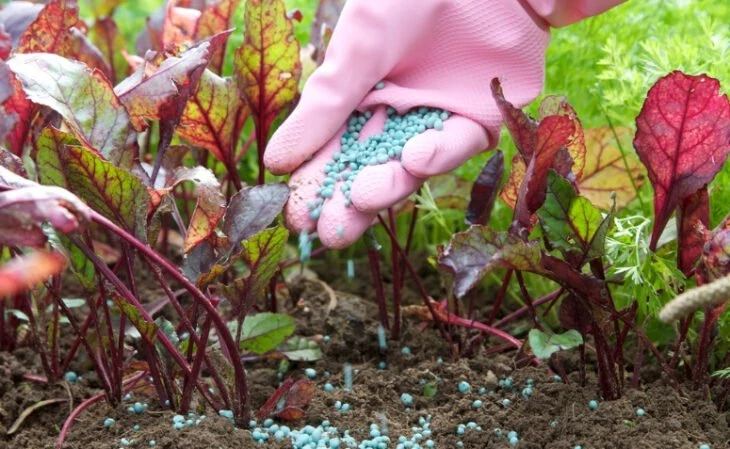
The use of fertilizers helps the soil to retain moisture. The use of these products also prevents water from evaporating, fights weeds, and leaves your little plant healthier.
38. do the rain collection correctly
There is no point in storing rainwater to reuse it, and later finding out that it is not fit for use. Therefore, when storing, always cover the container, to avoid infestation by mosquitoes, especially those that spread diseases, such as Aedes aegypti which is responsible for transmitting dengue fever.
Use concentrated cleaning products
Aline explains that it is possible to use concentrated soaps, for example, "which guarantee high performance with just one rinse". With quality products, which have a more efficient cleaning action, the clothes stay scented for longer; "and not having external dirt, you will use them more often", says the professional. Besides, many of them come with biodegradable raw materials,that help to not harm the environment.
40. only one rinse
Most washing machine programs suggest two or more rinses, but there is no need to do so. Program only one rinse, add enough fabric softener for the program you have chosen, and you are good to go.
41. children's competition

To avoid becoming a boring task or an obligation, how about disguising the economy with a game? You can suggest, for example, a competition to see who takes the best bath (it has to be a straight and complete bath, washing everything, even behind the ears) in less time. For sure, the little ones will join in and love to take a bath.Oh, and don't forget to award a prize to the winner.
42. turn off the tank faucet
According to Sabesp, every 15 minutes with an open tap at the tank, the water consumption is 270 liters, twice as much as a complete washing cycle in a machine with a capacity of 5kg.
43. bring the pans to the table
There is nothing stopping you from using your own platters to set an amazing table and leave your guests with their eyes wide open, but on a day-to-day basis, bring your own pan to the table. By making fewer utensils dirty, you use less water.
44. use steam to your advantage
There are several steam cleaners on the market that work with steam. These are types of vacuum cleaners, used to clean dusty corners or those with accumulated fat. These steam cleaners are practical, fast (since the cleaning is done much faster than with a squeegee and a cloth) and economical. With just a little water in one compartment, the pressure and temperature rise, and theThe result is steam, which removes the dirt without any difficulty.
45. let the clothes soak
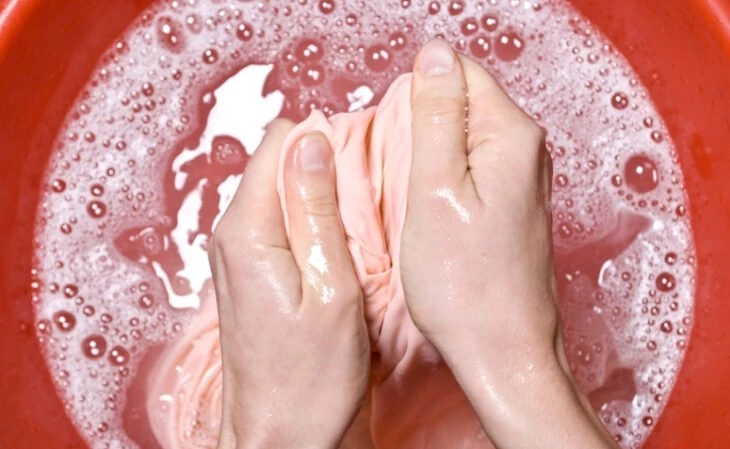
Many people use the machine's "pre-wash" mode, because they come with this function. According to Aline, "although it is more practical, the best way to save money is to leave the clothes in a bucket with water, since the final cleaning result is the same. This same water can be reused to clean the yard or the sidewalk at home.
46. use the same glass for drinking water
If you go to the filter every hour and drink a glass of water, what is the point of getting a new glass every time? For every glass you use, you need two more glasses of water to wash it. So use the same glass all day long!
47. whenever possible, use the economy mode
The most modern machines have a washing cycle that uses only one rinse; that is, the so-called economic mode. "In this function, it uses 30% less water, besides saving energy. The use of fabric softener in this function can also help in ironing and leave them very soft", explains Aline. The professional also gives a golden tip: "Last but not least: checkBut make no mistake, the bar with the letters A to G refers to energy consumption, while water consumption is at the bottom of the labels.
48. garden X Cement
If possible, prefer to have a garden instead of a cemented area. This way you favor the infiltration of rainwater into the soil, and already save on watering. Another good option is to use concregram in areas that need paving.
49. adopt sprinklers for your garden
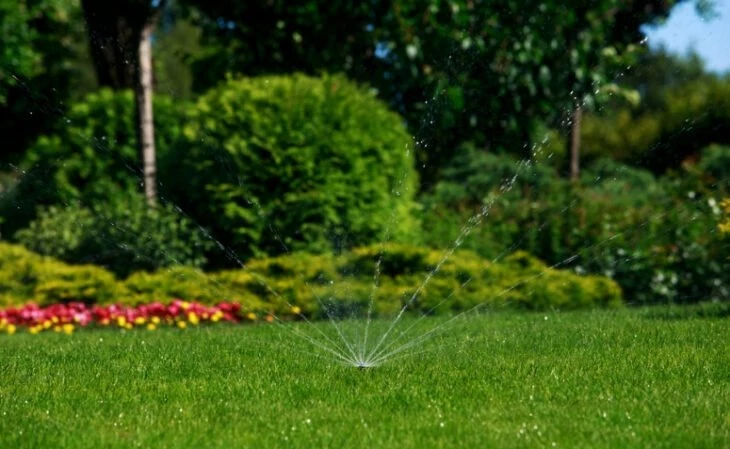
With these timers, your garden will always be watered and green. They are great because, besides doing the job on your behalf, they also shoot out only the necessary water, which would not happen with the hose, which usually leaves some patches more waterlogged than others.
50. use watering can
Regardless of whether you have a garden, a corner of the house, or a yard full of pots, adopt the watering can instead of using a hose. This is another way to save water: it goes directly into the pot, unlike the hose, which lets a lot of water run onto the ground.
Saving water is good for your pocket and, mainly, for the environment! A sustainable option for a conscious consumption is the cistern.


